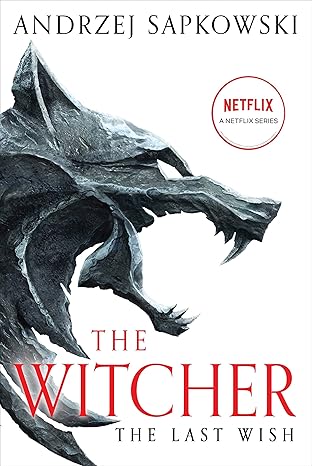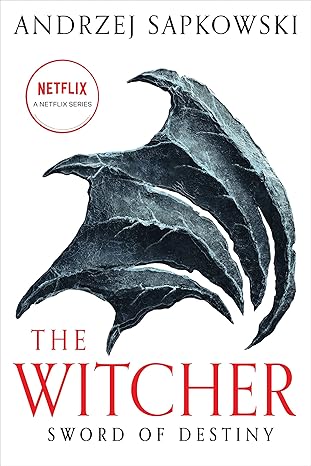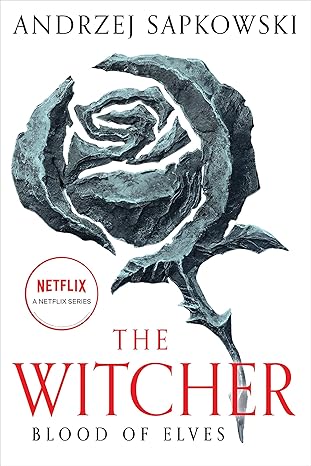
How to Read Andrzej Sapkowski's Books on The Witcher FAQ
How to Read Andrzej Sapkowski's Books on The Witcher FAQ
Estimated Reading Time: 10-12 minutes
Introduction
Andrzej Sapkowski, a Polish author born in 1948, is best known for his contributions to the fantasy genre, particularly through his iconic series, The Witcher. This series, which began with short stories and evolved into a full-fledged saga, has captivated readers worldwide and has been adapted into video games, television series, and graphic novels. Sapkowski's unique blend of Slavic mythology, moral ambiguity, and richly developed characters offers profound insights into human nature and society, making his works not only entertaining but also deeply philosophical.
In exploring The Witcher FAQ, we delve into themes of destiny, morality, and the human condition, all of which are intricately woven into the narratives of his works. Sapkowski's perspective is especially valuable because it challenges conventional notions of heroism and villainy, inviting readers to question their own beliefs and values.
Why Andrzej Sapkowski's Perspective Matters
Sapkowski's approach to storytelling is distinctive for its emphasis on moral complexity and the gray areas of human behavior. Unlike many traditional fantasy authors who present clear-cut heroes and villains, Sapkowski's characters are multi-dimensional, often facing dilemmas that reflect real-world ethical challenges. This nuanced portrayal of morality is what sets his work apart from other fantasy literature.
Moreover, Sapkowski draws heavily from Polish folklore and history, infusing his narratives with cultural depth that resonates with readers on multiple levels. His insights into the nature of power, prejudice, and the consequences of choices are not only relevant to his fictional world but also to our contemporary society. The impact of his ideas continues to inspire discussions on ethics, identity, and the human experience.
Overview of Recommended Books
The Last Wish
The Last Wish is the first collection of short stories in The Witcher series, introducing readers to Geralt of Rivia, a monster hunter navigating a world filled with magic, political intrigue, and moral ambiguity.
Main Themes and Arguments
The central theme of The Last Wish revolves around the nature of destiny and choice. Geralt often grapples with the consequences of his decisions, questioning whether he is merely a pawn of fate or if he can forge his own path. The stories explore the complexities of love, sacrifice, and the often-blurred lines between good and evil.
Historical Context and Significance
Published in 1993, The Last Wish emerged during a time when Eastern European literature was gaining international recognition. Sapkowski's work reflects a post-communist society grappling with its identity, and his integration of folklore and myth serves as a commentary on cultural heritage.
Key Insights and Takeaways
- Destiny vs. Free Will: The stories challenge the idea of predestination, emphasizing the importance of personal choice in shaping one's fate.
- Moral Ambiguity: Characters often embody conflicting traits, illustrating that good and evil are not always clear-cut.
- The Nature of Love: Romantic relationships in the stories are complex, showcasing love's ability to inspire and destroy.
Why Read This Book:
The Last Wish is essential for understanding the foundational themes of The Witcher universe. It introduces Geralt's character and sets the stage for the moral dilemmas he will face throughout the series. Readers interested in character-driven narratives and philosophical explorations of destiny will find this collection particularly rewarding.
Sword of Destiny
Following The Last Wish, Sword of Destiny continues to develop Geralt's character while deepening the exploration of fate and personal agency.
Main Themes and Arguments
The theme of destiny remains prominent, but Sword of Destiny also delves into the nature of relationships, particularly the bonds between Geralt and other key characters, including Yennefer and Ciri. The stories examine how love and loyalty can shape one's destiny, often leading to unforeseen consequences.
Historical Context and Significance
Released in 1992, this collection predates The Last Wish but was published later in English, highlighting the non-linear journey of Sapkowski's storytelling. It reflects the author's growing confidence in exploring complex emotional and philosophical themes.
Key Insights and Takeaways
- Interconnectedness of Fate: The stories illustrate how individual destinies are intertwined, emphasizing the impact of one person's choices on others.
- The Cost of Love: Geralt's relationships reveal the sacrifices made in the name of love, often leading to tragic outcomes.
- Cultural Heritage: The stories draw from various mythologies, enriching the narrative with layers of meaning.
Why Read This Book:
Sword of Destiny is crucial for understanding the evolution of Geralt's character and his relationships. Readers who appreciate intricate character dynamics and philosophical musings on love and fate will find this collection compelling.
Blood of Elves
Blood of Elves marks the transition from short stories to a full-length novel, expanding the narrative scope and character development.
Main Themes and Arguments
The novel explores themes of identity, the impact of war, and the struggle for power. As Geralt becomes a guardian to Ciri, the story delves into the complexities of mentorship and the responsibilities that come with it.
Historical Context and Significance
Published in 1994, Blood of Elves represents a maturation of Sapkowski's writing style, showcasing his ability to weave intricate plots and develop rich character arcs within a broader political landscape.
Key Insights and Takeaways
- Identity Formation: Ciri's journey highlights the challenges of self-discovery and the influence of external forces on personal identity.
- War and Its Consequences: The narrative reflects the impact of conflict on individuals and societies, serving as a critique of power struggles.
- Mentorship and Responsibility: Geralt's role as a mentor underscores the importance of guidance and moral support in shaping the next generation.
Why Read This Book:
Blood of Elves is essential for understanding the overarching narrative of The Witcher series. It deepens the exploration of character relationships and introduces significant themes of identity and power. Readers interested in epic storytelling and character development will find this novel particularly engaging.
How These Books Complement Each Other
These three works build upon each other, creating a rich tapestry of themes and character development. The Last Wish and Sword of Destiny lay the groundwork for Geralt's character and the philosophical questions surrounding fate and morality. In contrast, Blood of Elves expands the narrative, exploring the implications of those themes in a broader context. Together, they provide a comprehensive understanding of The Witcher FAQ, illustrating how personal choices affect not only individual destinies but also the fate of entire worlds.
Who Would Benefit from Reading These Books
- Students and Academics: Those studying literature, philosophy, or cultural studies will find valuable insights into narrative structure and thematic depth.
- General Readers Interested in The Witcher FAQ: Fans of fantasy literature and those curious about moral philosophy will appreciate Sapkowski's unique approach.
- Professionals Seeking Practical Wisdom: Readers looking for life lessons on ethics, decision-making, and personal growth will find relevant themes throughout the works.
- Anyone Looking for Personal Growth and Self-Improvement: The moral dilemmas and character arcs provide a reflective lens for readers to explore their own values and choices.
Recommended Reading Order
- Start with: The Last Wish - This collection introduces Geralt and the foundational themes of the series.
- Continue with: Sword of Destiny - This book deepens character relationships and explores the complexities of love and fate.
- Advanced reading: Blood of Elves - This novel expands the narrative scope and delves into themes of identity and power.
Tips for Getting the Most Out of Each Book:
- Take notes on character relationships and thematic developments.
- Reflect on the moral dilemmas presented in the stories and how they relate to contemporary issues.
- Consider the cultural references and their significance in shaping the narrative.
Conclusion
Andrzej Sapkowski's contributions to The Witcher FAQ offer a profound exploration of destiny, morality, and the human experience. His ability to weave complex narratives with rich philosophical themes makes his works both timeless and relevant. As you embark on this literary journey, allow yourself to engage deeply with the characters and their dilemmas. Explore the moral questions posed by Sapkowski, and consider how they resonate with your own life. Dive into these works, and you will not only gain a deeper understanding of The Witcher universe but also insights that can enrich your perspective on the world around you.
Tags: #Andrzej Sapkowski #The Witcher FAQ #Philosophy #ReadingGuide #ClassicLiterature #Wisdom
Featured Books

The Last Wish
by Andrzej Sapkowski
Published: 1993
A collection of short stories that introduce Geralt of Rivia and the world of The Witcher.

Sword of Destiny
by Andrzej Sapkowski
Published: 1992
More short stories that expand on Geralt’s relationships and the destiny of a child.

Blood of Elves
by Andrzej Sapkowski
Published: 1994
The first novel in the saga, following Ciri’s training and the beginning of a war.